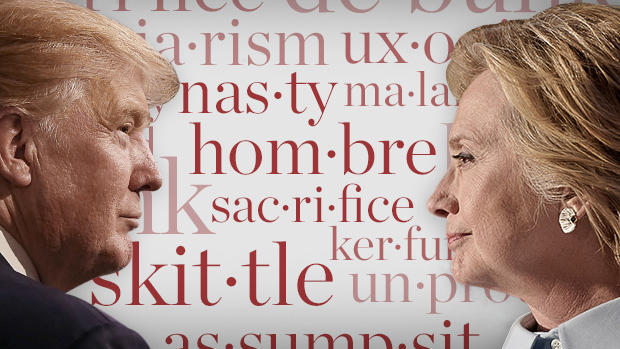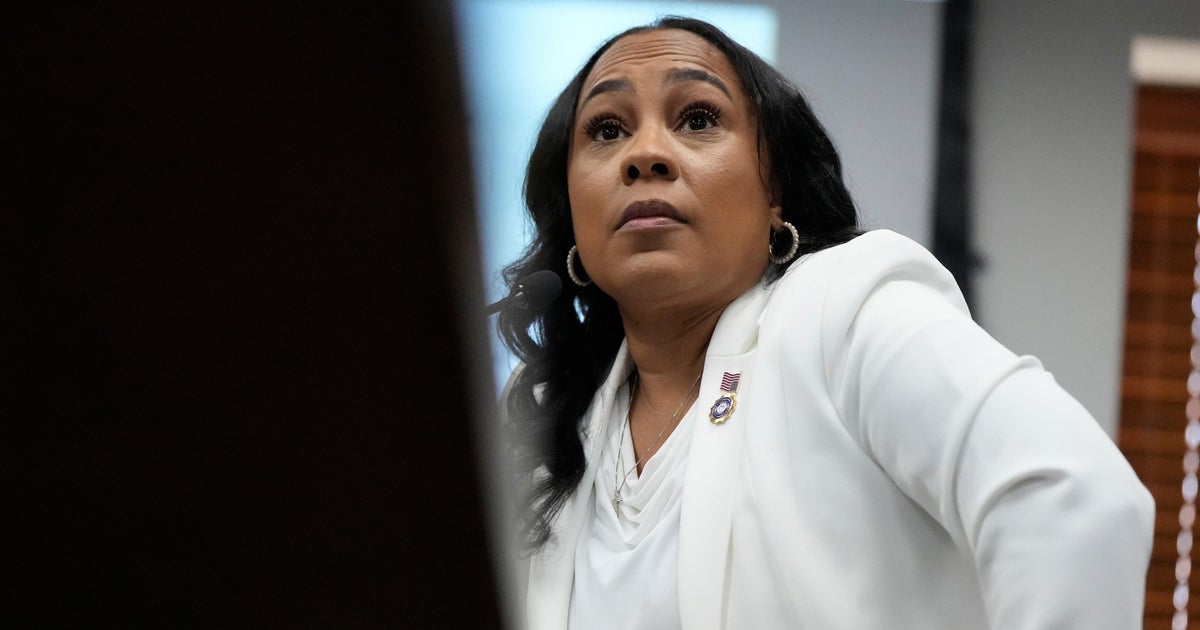"Bigly," "post-truth" among words nominated for banishment
DETROIT -- You, sir, (or ma’am): Focus, if you will, on a historic, on fleek listicle containing words nominated for bigly banishment. But don’t convene a town hall meeting or get your dandruff up in the echo chamber over them.
Northern Michigan’s Lake Superior State University on Saturday released its 42nd annual List of Words Banished from the Queen’s English for Misuse, Overuse and General Uselessness.
The tongue-in-cheek, non-binding list comes from suggestions to the Sault Ste. Marie school. It includes “you, sir,” “focus,” “town hall meeting,” “historic,” “echo chamber,” “on fleek,” “bigly,” “listicle” and “get your dandruff up,” an apparent substitute for “dander,” its hair-and-skin kin.
The others were “Frankenfruit,” “bête noire,” “guesstimate,” “ghost,” “dadbod,” “selfie drone,” “manicured,” “post-truth,” “disruption” and “831” - a texting encryption of “I love you” (eight letters, three words, one meaning).
The divisive 2016 election influenced nominations, and was reflected in the inclusion of “bigly”and “post-truth.”
“Bigly” also made Merriam-Webster’s Top 10 for 2016. President-elect Donald Trump was fond this year of saying “big league” but making it sound like “bigly,” an archaic adverb or adjective dating to around 1400.
“Post-truth,” a term sometimes used to describe the current political climate, is Oxford Dictionaries’ word of the year. It is an adjective defined as “relating to or denoting circumstances in which objective facts are less influential in shaping public opinion than appeals to emotion and personal belief.” It won Oxford Dictionaries’ honorific because use of the term rose 2,000 percent between 2016 and 2015, and it applied to events beyond the race to the White House.
John Shibley, Lake Superior State spokesman and list-compiler in chief, said “lots of political vitriol” came in this year, with people wanting to ban “President Trump,” “Crooked Hillary” and “Electoral College.” Shibley said he “made an editorial decision not to wade into that swamp,” - drained or otherwise.
He said all words that made the final list garnered 200-300 votes apiece, and the top vote-getter was “echo chamber,” with more than 500 submissions.
Overall, the university received submissions from about 8,000 people and maintains an archive of more than 850 words. Since it started its word banishment tradition, the university has received tens of thousands of nominations for the list. Most this year came through the university’s website, Lake Superior State University said.
The late W. T. Rabe, a public relations director at the university, started the tradition. Rabe and fellow faculty and staff came up with the first list of words and phrases in 1975, at a New Year’s Eve party. The list was published on Jan. 1, 1976.
”Though he and his friends created the first list from their own pet peeves about language, Rabe said he knew from the volume of mail he received in the following weeks that the group would have no shortage of words and phrases from which to choose for 1977,” the university says on its website. “Since then, the list has consisted entirely of nominations received from around the world throughout the year.”
Another Michigan school takes the opposite approach: Detroit’s Wayne State University attempts through its Word Warriors campaign to exhume worthy words that have fallen out of favor. This year’s list included “absquatulate,” which means to discreetly and abruptly leave a place, such as a gathering or party, without informing the host. That’s an old-school analog to “ghost” on the banished words list.




